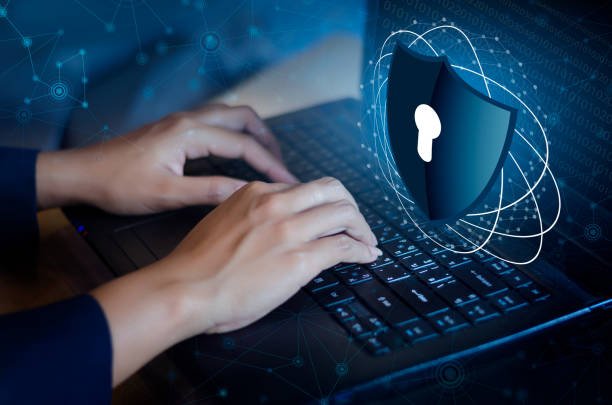Last Updated on 2 years ago by Imarticus Learning
In an age where lives are intertwined with digital threads, cybersecurity is no longer a domain reserved for IT professionals. It’s a critical layer of defense that everyone, from the CEO to the newest intern, should understand and implement in their daily routines.
Gartner forecasts that the cybersecurity sector’s rapid growth, at a CAGR of 8.9%, will lead to 50% of C-suite executives having performance clauses tied to cybersecurity risk management in their agreements by 2026.
So, let’s embark on a journey to demystify the complex world of cybersecurity, breaking it down into bite-sized, easy-to-digest nuggets of wisdom that will also empower you to protect yourself and your organization from digital threats.
The Bedrock of Cybersecurity: Understanding the Basics
Before we dive into the deep end, let’s start with the Information Security basics. Cybersecurity is essentially the practice of protecting systems, networks, and programs from digital attacks. These assaults typically seek to extort money from users, compromise sensitive data, or interfere with regular corporate operations. There are currently more devices than humans, making it difficult to implement efficient cybersecurity safeguards, and attackers are getting more creative.
How can small businesses improve their cyber defenses?
Imagine waking up to the news that your company’s confidential data has been leaked online. Not a pleasant thought, right?
In today’s digital age, the question isn’t if an attack will happen but when. Cybersecurity is not just about protecting information; it’s about safeguarding your reputation, finances, and the privacy of those who trust you with their data.
Keeping your security software, internet browser, and operating system up to date is the most effective way to protect against viruses, malware, and additional online dangers. Configure your antivirus program to perform a scan following every update. Also, promptly install updates for other essential software whenever they become available.

Pillar 1: Know Thy Enemy – Common Cyber Threats
To protect yourself, you need to know what you’re protecting yourself against. Here are some common cyber threats that everyone should be aware of:
-
Phishing: The Art of Deception
Phishing scam awareness uses fraudulent emails or messages that mimic reputable sources to trick people into their personal information. These personal information include passwords and credit card numbers. Always verify the source before clicking on the links or downloading attachments.
-
Ransomware: Digital Kidnapping
Ransomware attack prevention 2024 is a type of malicious software that blocks access to the computer system till an amount of money is paid. Always back up your data and install updates to protect against such attacks.
-
Malware: A Digital Pandemic
Malware, also known as malicious software, is a program or file that harms a computer user. Malware can steal, encrypt, delete your data, or monitor your computer activity without your knowledge. Use antivirus software and keep it updated.
Pillar 2: The Shield and Sword – Defending Against Cyber Threats
Now that you know what you’re up against, let’s talk strategies for safeguarding sensitive corporate data.
-
Strong Passwords: The First Line of Defense
A strong password is like a complex lock that’s hard to crack. Use combination of letters, numbers & symbols, and avoid using easily guessable information like birthdays.
-
Two-Factor Authentication: An Extra Layer of Security
2FA adds a layer of security by requiring two forms of identification before granting access. Even if someone guesses your password, they won’t be able to access your account without the second form of verification.
-
Regular Updates: Closing the Doors to Vulnerabilities
Software updates often include patches that have been discovered since the last version. By keeping your software updated, you’re losing potential entry points for attackers.
Pillar 3: Cyber Hygiene – Practices to Keep Your Digital Self Healthy
Maintaining good cyber hygiene is akin to personal hygiene; neglecting it can lead to serious problems.
-
Be Skeptical of Unsolicited Contacts
Always question the legitimacy of unexpected requests for information. When in doubt, contact the company or individual directly using information from their official website.
-
Know What You Share Online
Be mindful of the information you share on social media and other online platforms. Oversharing can lead to identity theft and other forms of cyber exploitation.
-
Regular Check-ups
Regularly review your online accounts and financial statements for unusual activity. This can also help you catch and respond to potential security breaches early.
Cybersecurity is not just the concern of IT professionals or tech companies; it’s a shared responsibility. In an interconnected world, the actions of one individual can affect the security of many. This interconnectedness means that everyone has a role to play in cybersecurity.
The Final Words
Whether you’re an employee ensuring the safety of corporate data or an individual protecting your personal information, your actions contribute to the broader landscape of digital security. By adopting best practices for cybersecurity, we not only protect ourselves but also contribute to the security of our families, communities, and the organizations we are part of.
While technology is a critical ally in the fight against cyber threats, it cannot act alone. The human element—our actions, awareness, and commitment to cybersecurity—is indispensable. By staying informed and vigilant, each one of us becomes a vital piece of the puzzle in creating a safer digital world. Remember, in the realm of cybersecurity, we are stronger together, and our shared efforts can make a significant difference.
Key Summary Points
- Cybersecurity is critical for protecting sensitive information, finances, and reputations.
- Common cyber threats include phishing, ransomware, and malware.
- Defend against attacks by using strong passwords, enabling two-factor authentication, and regularly updating software.
- Maintain good cyber hygiene by being skeptical of unsolicited contacts, mindful of what you share online, and regularly checking your accounts.
- The human element is essential in cybersecurity. Stay informed, vigilant, and proactive.
Unlock Your Future in Cybersecurity with Imarticus Learning
Imarticus Learning offers a Cybersecurity course that takes you deep into the vital domains of cybersecurity, cryptography, and blockchain, reflecting the latest industry standards and practices. Our comprehensive curriculum, co-created by esteemed faculty from IIT Guwahati and industry experts, serves as your guide to acquiring essential skills for a robust and innovative future.
Dive into a learning journey where you’ll develop the prowess to safeguard against cyber threats, leverage encryption to protect data, and explore the revolutionary impact of blockchain across various industries.
Crafted with precision and expertise by the faculty of IIT Guwahati and industry professionals, our curriculum covers the essentials of networking, ethical hacking, vulnerability analysis, blockchain technology, and comprehensive network security strategies.
Experience hands-on learning with the tools that define today’s cybersecurity landscape, including VMware, Kali OS, Wireshark, Nessus, Nmap, and others. Our program emphasizes practical skills through immersive lab sessions, preparing you to demonstrate your cybersecurity capabilities confidently.
Engage directly with the minds shaping the future of cybersecurity in live interactive sessions. Led by IIT Guhawati’s distinguished faculty and seasoned industry veterans, these discussions will broaden your understanding of networking, ethical hacking, vulnerability assessment, and the transformative power of blockchain technology. Are you ready to position yourself at the forefront of cybersecurity innovation? Enroll in Imarticus Learning’s cybersecurity program now and take the initial step toward mastering the digital defenses of tomorrow. Your path to becoming a cybersecurity leader starts here.

